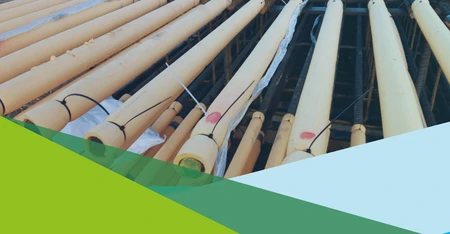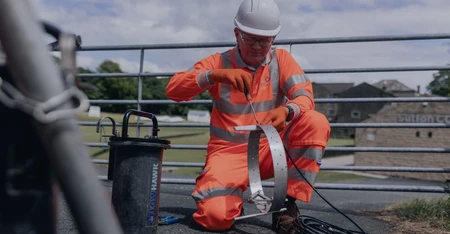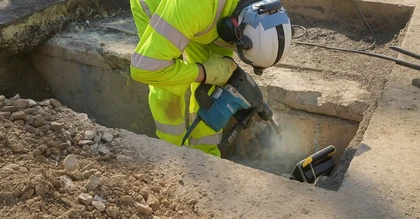Low Strain Pile Integrity Testing (PIT) is an indispensable non-destructive method for evaluating the homogeneity and integrity of single piles, ensuring the long-term suitability of foundations.
The Importance of a Low Strain Integrity test
In the construction industry, ensuring the integrity of concrete piles is crucial for safety, sustainability, and operational efficiency. With PIT, clients and contractors are provided with information to assist in identifying significant anomalies in piles, mitigating risks that could compromise structural stability and lead to costly repairs or failures. This testing method supports quality assurance, helping to maintain high standards and comply with regulatory requirements.
We employ cutting-edge equipment that meets ASTM D5882 standards and holds UKAS accreditation (Cert.Nr. 0001). Our strategically located site operatives across the UK can respond swiftly to meet your immediate testing needs, ensuring minimal disruption to your project timeline.

Talk to our experts

Low Strain Pile Integrity Testing
Our Approach
We combine the expertise of our experienced site operatives with advanced testing equipment to deliver precise and reliable results. Our hands-on, plain-speaking problem-solving approach ensures that every pile tested meets stringent quality and safety standards. We distil complex data into clear, actionable reports, empowering our clients to make informed decisions about their construction projects.

We combine the expertise of our experienced site operatives with advanced testing equipment to deliver precise and reliable results. Our hands-on, plain-speaking problem-solving approach ensures that every pile tested meets stringent quality and safety standards. We distil complex data into clear, actionable reports, empowering our clients to make informed decisions about their construction projects.
Learn More

Check out our other Pile Testing Services

Let's Talk
We're here to support all of your Pile Integrity Testing needs
Check out our latest news & media

Utility Coring - Understanding the Process

Ground Investigation and Adopting the Correct Approach to Site Categorisation

Pile Testing Methods – Thermal Integrity Profiling

SOCOTEC UK & Ireland exhibits at Highways UK conference for third successive year

SOCOTEC UK and Ireland Celebrates Double Nomination at Environmental Monitoring Awards

SOCOTEC UK Leads the Way with SQ P3 Concrete Project

SOCOTEC Drilling Academy Celebrates New Milestone: Our Second Graduate has Completed the Programme













